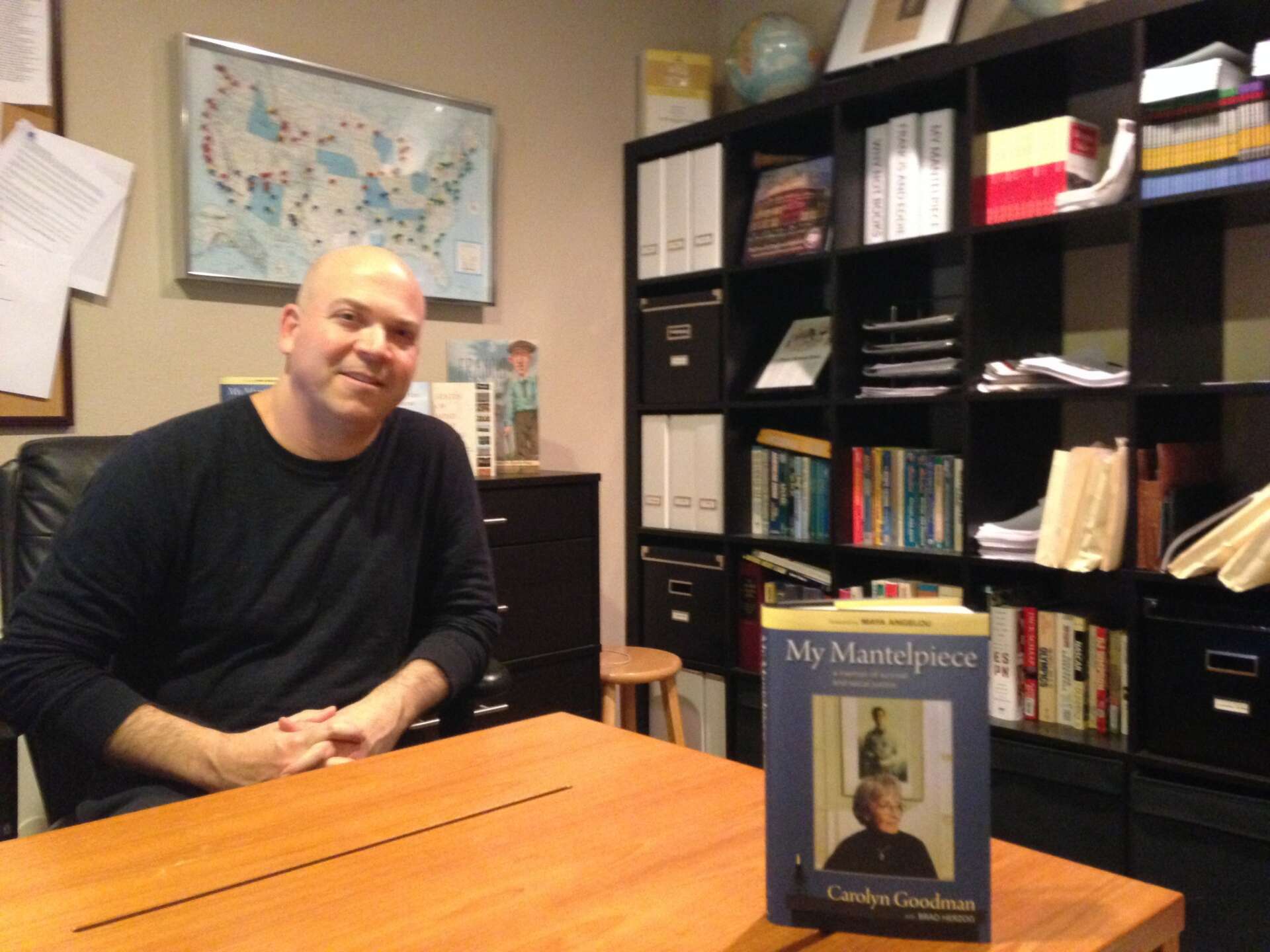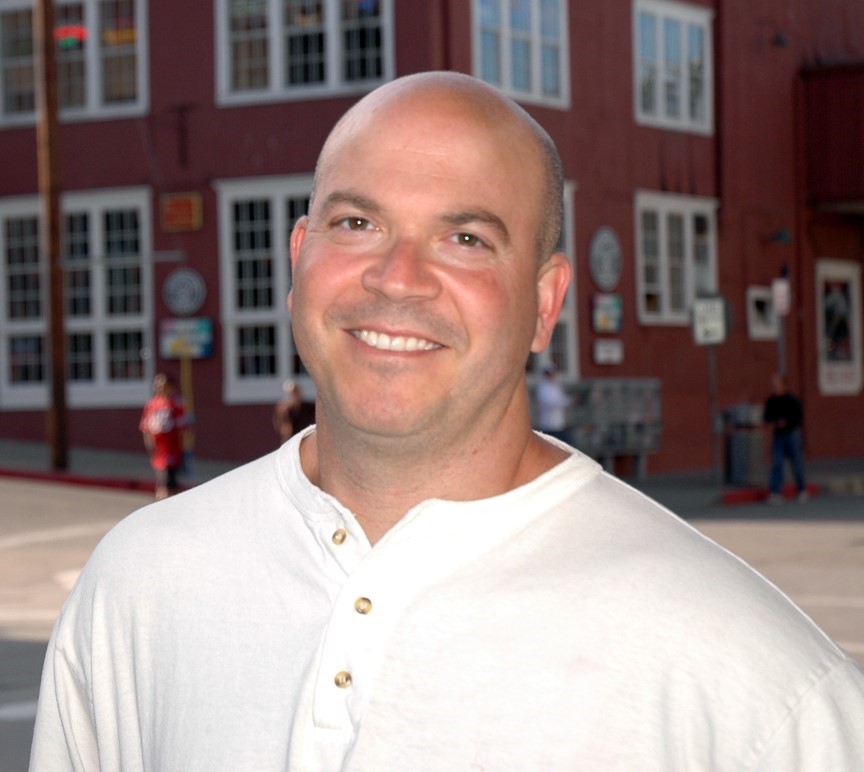We’re excited to introduce you to the always interesting and insightful Brad Herzog. We hope you’ll enjoy our conversation with Brad below.
Brad, appreciate you joining us today. Can you talk to us about a project that’s meant a lot to you?
Many years ago, I wrote an article for the Cornell (my alma mater) alumni magazine about Carolyn Goodman. She was the mother of Andy Goodman, who was one of three civil rights workers murdered by the KKK in rural Mississippi in June 1964. Andy and his colleagues were “Freedom Summer” volunteers working to secure voting rights for the state’s Black residents. They were arrested for speeding and essentially released into the hands of the Klan. Their bodies were found 44 days later, a tragedy that galvanized the civil rights movement, Andy’s mother dedicated the rest of her life to assuring that her son did not die in vain and became a civil rights icon herself. She asked me to co-author her memoirs, MY MANTELPIECE, which I released through my own publishing venture (Why Not Books) in 2014, the 50th anniversary of the murders. Unfortunately, Carolyn passed away before the book was published, but I’m grateful that her voice lives on (and oh by the way, the voice of Maya Angelou, too, who contributed the book’s foreword just weeks before she died). I later worked with Carolyn’s youngest son, David, on another book that examines the tragedy and the movement through the work of civil rights-focused artists. And I’m currently about to embark on a third project with David, an account of Freedom Summer from the perspective of a young Black woman who was part of the movement and among the last to see the slain volunteers alive. It feels great to tell the stories that need to be told. It’s one thing to make a living as a writer, but it’s much more satisfying to make a difference.



As always, we appreciate you sharing your insights and we’ve got a few more questions for you, but before we get to all of that. Can you take a minute to introduce yourself and give our readers some of your background and context?
Growing up, I always knew I was going to be a writer of some sort. I just didn’t know which sort. In some respects, I still don’t know, and that may be what sets me apart. I’m not sure many writers have covered more genres, styles, subjects, and outlets than I have. I began as a newspaper sportswriter, but quickly transitioned to becoming a freelance writer and author at the age of 23. I’ve been doing it for more than three decades, and while it can be a challenging way to make a living, it has allowed me the freedom to simply write what I want to write.
So I’ve written hundreds of national magazine stories and more than 50 books — for all ages, fiction and nonfiction — on subjects ranging from civil rights to soccer to space exploration. This includes more than 30 children’s books, as well as four literary travel memoirs about my journeys through small-town America. My first travel narrative, STATES OF MIND, rose to #2 on the Amazon bestseller list, behind only a Harry Potter novel . (Darn wizard.) That happened after a particularly crazy month of publicity that included interviews on “Today” and “Oprah,” stories in Time and People magazines, and a memorable (and nerve-wracking) stint on “Who Wants to be a Millionaire’ at the peak of the phenomenon in 2000.
I have recently switched gears to try to make a go of it as a screenwriter, and again my subjects have covered the spectrum — sci-fi, true history, comedy, romance. I’ve also enjoyed giving a couple of popular TEDx talks titled “Catching Creative Ideas” and “Write the Wrong Way..” And I even support my local (Pacific Grove, CA) Chamber of Commerce by waxing eloquent about my hometown twice a month. So my career has been nothing if not eclectic and interesting.


Is there something you think non-creatives will struggle to understand about your journey as a creative?
A career as a writer is difficult in countless ways. It can be mentally taxing — you’re never off the clock, and when your job is to observe and analyze the world, you find yourself inside your head quite a bit. Sometimes that’s a tricky place to be. Authoring books is usually not lucrative, sometimes laughably so. And it is incredibly difficult to get a book published, let alone magically turn it into a bestseller. There is a tremendous gauntlet blocking most projects and brimming with myriad gatekeepers whose primary job is to say no. Some literary agents, for instance, may receive thousands of query letters each year and take on only two clients.
But mostly, writing a book or screenplay is hard. It takes a particular set of skills, as Liam Neeson might say. It’s not just something you can do. If I had a dollar for everyone who has said to me that they have a great idea for a book or a movie, and I should “do it,” I’d have a nicer car. My favorite story about this concerns an author who was at a dinner party. She was approached by a neurosurgeon, who said, “You know, I was thinking of writing a book.” The author responded, “And you know what? I was thinking of doing some brain surgery.”


We often hear about learning lessons – but just as important is unlearning lessons. Have you ever had to unlearn a lesson?
As a writer, I believe my job is to be curious, to tilt my head at the world, notice what others might miss, and say to myself: “How can I explore that further?” So question everything… that’s my role. So I decided to give a TEDx talk (“Write the Wrong Way”) questioning some of the most common so-called rules of writing. Stick to one genre and brand yourself? Well, how do we discover our writing passion and where our skills are best suited unless we dabble a bit? You may see yourself as an essayist, a travel writer, or a romance writer, but writers are shapeshifters. As Walt Whitman said, “I am large; I contain multitudes.” Write what you know? Actually, I like to write about what I don’t know — what I would like to learn about. Force yourself to write — a certain number of words or at a certain time of day? I say don’t MAKE yourself write — LET yourself write. Be open to inspiration at any time. Finally, start at the beginning? Nope. I hardly ever write linearly. I’m not sure I’ve ever written the opening paragraph of a magazine article first. Same with books and films. I may start with Chapter 3 or Scene 14 — whatever comes to me when I’m inspired.
Contact Info:
- Website: bradherzog.com


